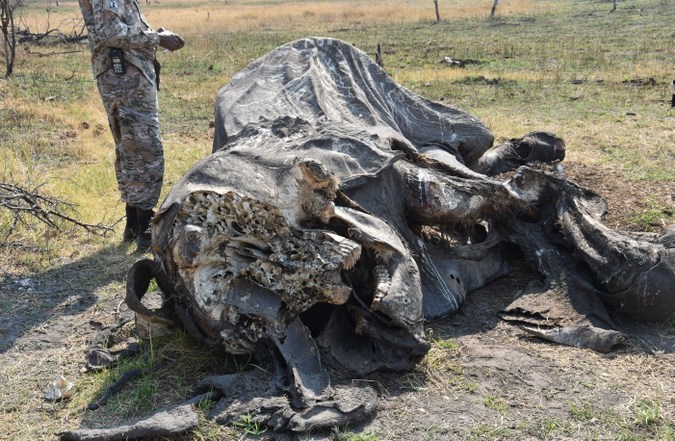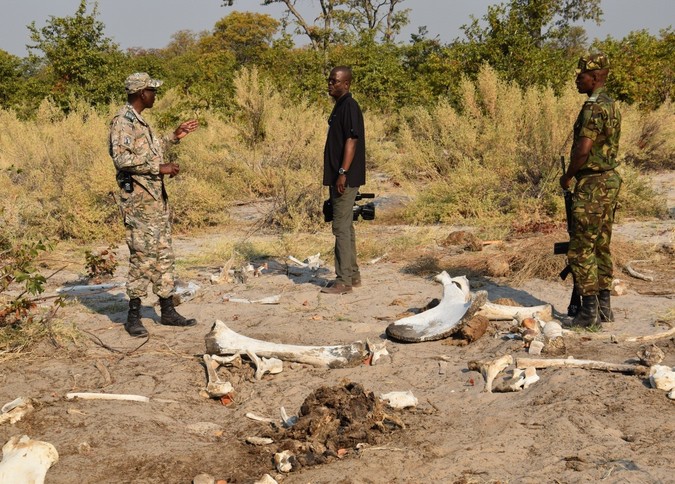
Sourced from third-party site: Botswana Government (Facebook)
Stories are doing the rounds about the discovery of at least 87 elephant carcasses in Botswana, sparking an international outcry over what is being called the largest scale of elephant poaching to date.
The following is a letter from the Botswana government in response to the elephant poaching statistics:
The Government of Botswana has noted with concern unsubstantiated and sensational media reports on elephant poaching statistics in Botswana carried by some local and international media attributed to Elephants Without Borders (EWB), a non-governmental organisation contracted by the Botswana Government to carry out the dry season aerial survey of elephants and wildlife in northern Botswana covering Chobe, Okavango, Ngamiland and North Central District. The stories allege that about 90 elephants have been indiscriminately killed recently.
To this end, the Government of Botswana wishes to inform members of the public and other key stakeholders that these statistics are false and misleading. At no point in the last months or recently were 87 or 90 elephants killed in one incident in any place in Botswana.
The Government of Botswana wishes to further inform that the survey conducted by EWB started on 5th July 2018 and is expected to end by 30th September 2018.
During the conduct of the survey from 5th July up to 1st August 2018, EWB reported that they had come across 53 elephant carcasses which were incidents that had already been cumulatively reported officially to the Government as early as July and August of this year.
Of the aforementioned 53 reported, a verification mission between July and August established that the majority were not poached but rather died from natural causes and retaliatory killings as a result of human and wildlife conflicts.
The Government of Botswana wishes to state that it is unfortunate that some media reports attribute the rise in elephant poaching primarily to the withdrawal of weapons from the Department of Wildlife and National Parks (DWNP) anti-poaching unit. The fact of the matter is that the withdrawal of such weapons from DWNP, did not in any way affect the effectiveness and operations of the anti-poaching units.
It should be noted that the Government of Botswana has from the 1980s directed all security agencies to commit resources towards anti-poaching, a practice that continues to this date. Therefore the withdrawal of weapons from DWNP has not created any vacuum in anti-poaching operations as the anti-poaching unit in DWNP continues to play a pivotal role in combating wildlife crime through other strategic interventions.
Furthermore the public is informed that withdrawing weapons from DWNP is in line with the existing legislation which does not allow the Department of Wildlife and National Parks to own such weapons. This action was taken whilst corrective measures are to be undertaken.
In conclusion, the Government of Botswana wishes to condemn in the strongest terms possible attempts by individuals or groups who give a false impression that they love Botswana wildlife more than citizens of Botswana. Government wishes to reiterate the fact that wildlife remains a national heritage and our citizens will protect it at all costs.
Thank you.
Thato Y. Raphaka
PERMANENT SECRETARY

To comment on this story: Login (or sign up) to our app here - it's a troll-free safe place 🙂.![]()






